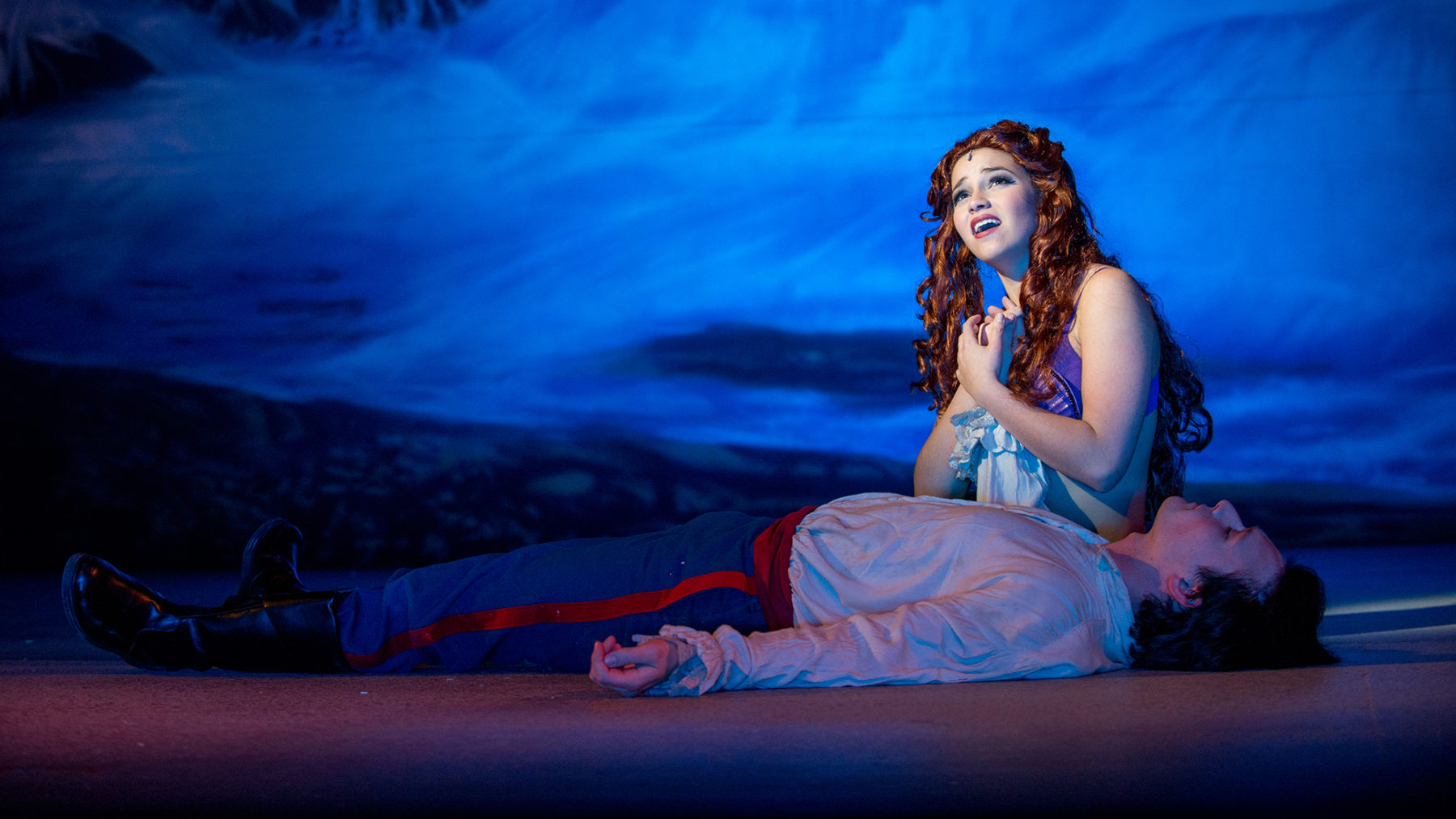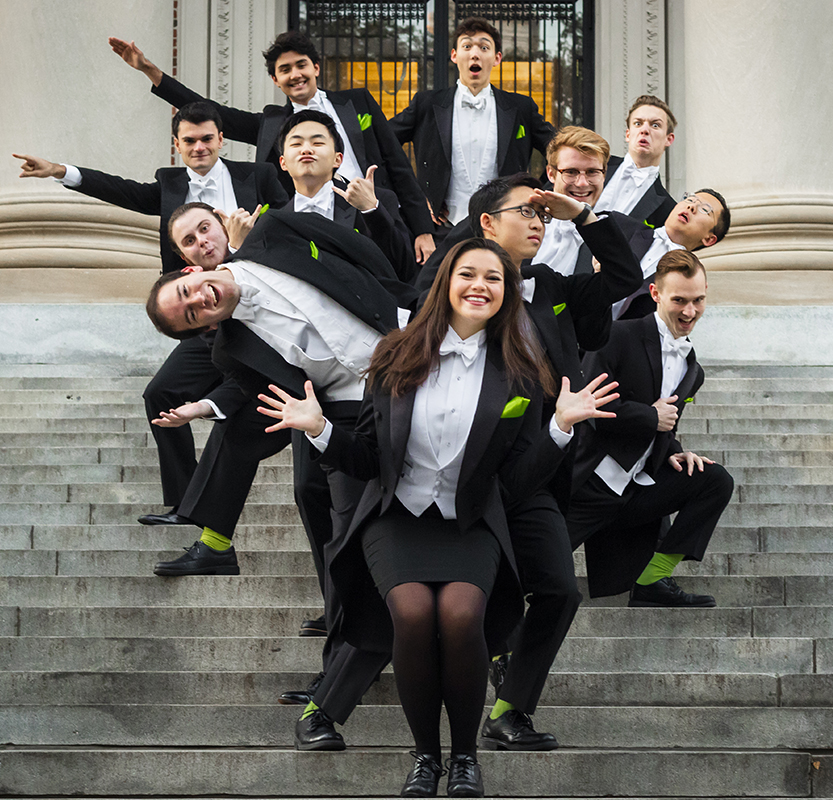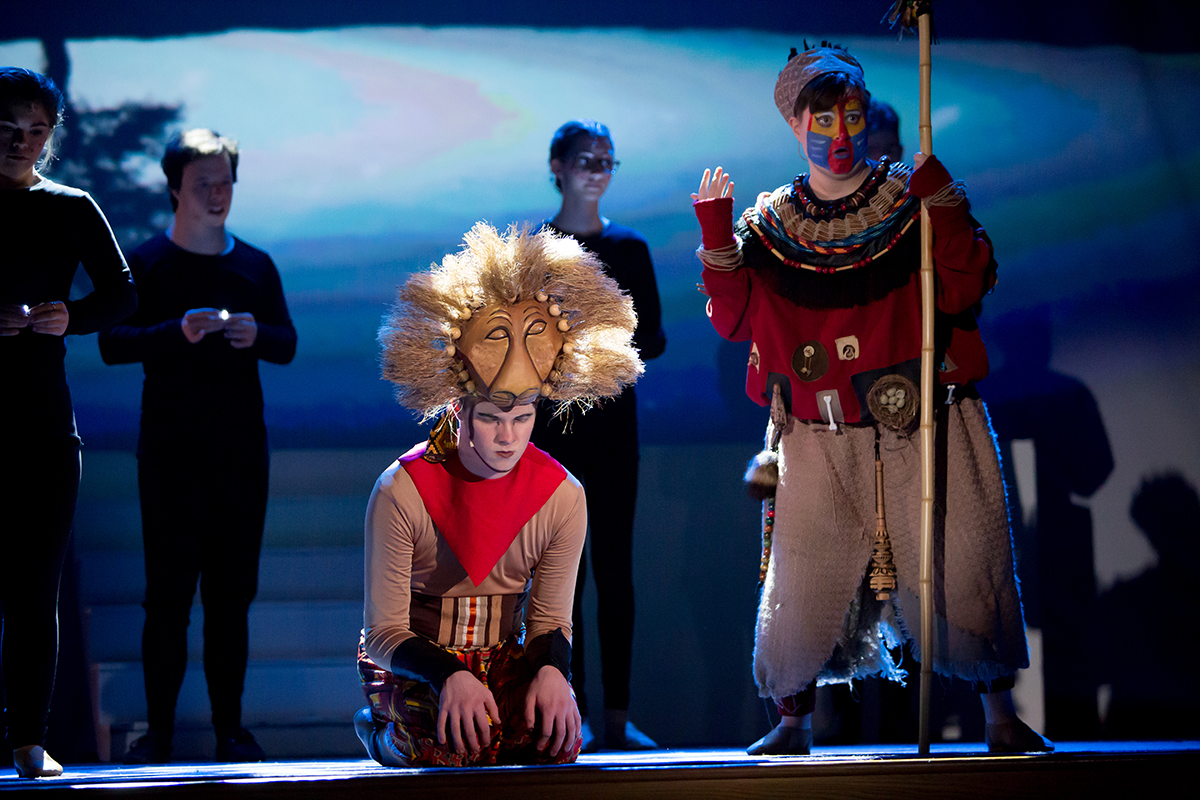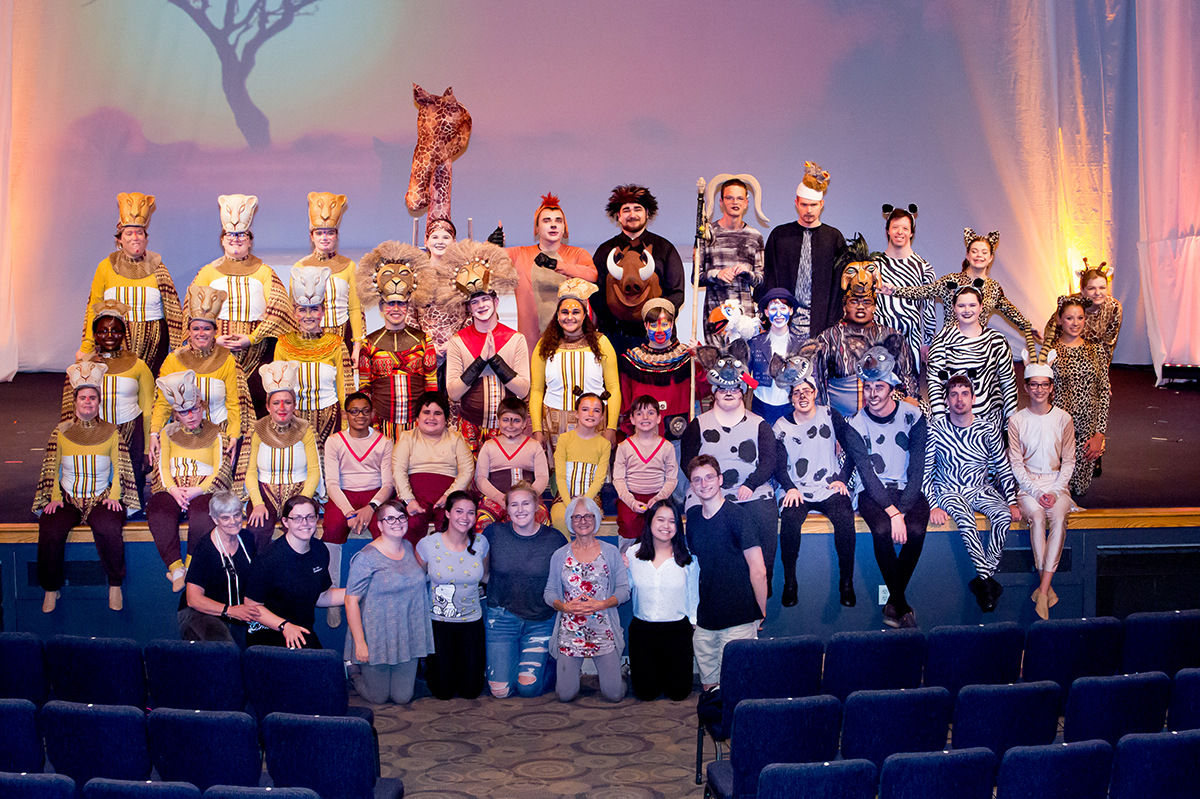
Karalyn Joseph in a production of “The Little Mermaid.”
Photo courtesy of Scott Serio
C.A.S.T.ing call
“Whenever I have the opportunity to cultivate an environment of my own, I try to put community, kindness, and welcoming at the forefront, no matter where, when, or who it is.”
Many high schoolers will tell you that theater changed their lives. It builds confidence and provides community at a time of life when both can be in short supply. And, when the curtain goes up, as many young actors will tell you, magic happens.
Karalyn Joseph, A.B. ’21, would agree with all that, but in some ways her path to personal growth was a little different than most.
A longtime lover of performing, Joseph started an inclusive, accessible theater program designed for youth and adults who identify as disabled in her hometown of Kennett Square, Pa., as a high school junior in 2016.
The inspiration emerged from two experiences. As an adolescent, Joseph performed in a YMCA production alongside an actor with autism spectrum disorder whose social skills and ability to communicate and connect clearly rose, owing to the show. Then, at 15, she volunteered at a Night to Shine prom event for people with disabilities, hosted by her church. Her assignment: staff the karaoke room.
“It was my first exposure to a large group of people who weren’t considered neurotypical in a context that put them and their talents front and center, which unfortunately is not often the case,” Joseph recalled. “Everyone had so much fun. Some had incredible voices, and others just got up on stage and screamed for three minutes, but they loved it, and everyone cheered.”
The next day, Joseph applied for a community-service project grant through her church. She received the high school–level award of $3,000, and her vision became a reality. Since then, the group has staged “Seussical Jr.,” “Beauty and the Beast Jr.,” “The Lion King Jr.,” and “Joseph and the Amazing Technicolor Dreamcoat.”


Joseph is the first woman invited to join the Harvard Din & Tonics a cappella group. She is also the founder and director of C.A.S.T., seen here in their 2018 production of “The Lion King Jr.”
Photos courtesy of The Harvard Din & Tonics and Dave Shoemaker

Photo courtesy of Dave Shoemaker
Joseph said she has managed to merge her interests at Harvard focusing on music and Theatre, Dance & Media (TDM) with a secondary concentration in neuroscience. Her extracurricular life has introduced her to mentors like Andrew Clark, director of choral activities and senior lecturer on music, who also directs Cambridge Common Voices, a neurodiverse choir of which Joseph has been a member.
The lessons and concepts Joseph learned in courses such as Clark’s “Music and Disability” have opened her eyes to ways in which she can deepen her understanding and interaction with the community.
“At its most basic level, the language commonly used around disability in parts of Pennsylvania versus a city like Boston is incredibly different, and I didn’t know that,” Joseph said. “It was helpful to take back with me [to Pennsylvania] just a little more understanding as opposed to remaining in the dark on the nuances and importance of language.”
Take the group’s name: C.A.S.T. Initially it stood for Community of Actors with Special Needs in Theatre. And now it is Community of Actors Sharing in Theatre. The acronym remained the same, but what’s beneath it changed.
“In the disability community, there’s a growing shift away from the term ‘special needs,’” Joseph said. “We had a wonderful discussion with our cast members and families about what language they prefer. It included the idea that everyone needs love; everyone needs food; and those needs aren’t any different from, or ‘more special’ than, yours or mine. So, we decided to move away from using that term.”
Joseph serves as director of the summer productions, but it takes a village to mount a show. A small army of volunteers help with costuming, music, stage direction, administration, and fundraising. The team strives to create a truly inclusive experience for audience members, providing sensory bags, American Sign Language (ASL) interpreters, “move and groove” spaces, and more.
“I just want everyone to have fun,” Joseph said. “Community is my biggest thing. Unfortunately, some of the theaters I’ve been a part of haven’t been great at that. Whenever I have the opportunity to cultivate an environment of my own, I try to put community, kindness, and welcoming at the forefront, no matter where, when, or who it is.”
This story is part of the To Serve Better series, exploring connections between Harvard and neighborhoods across the United States.




